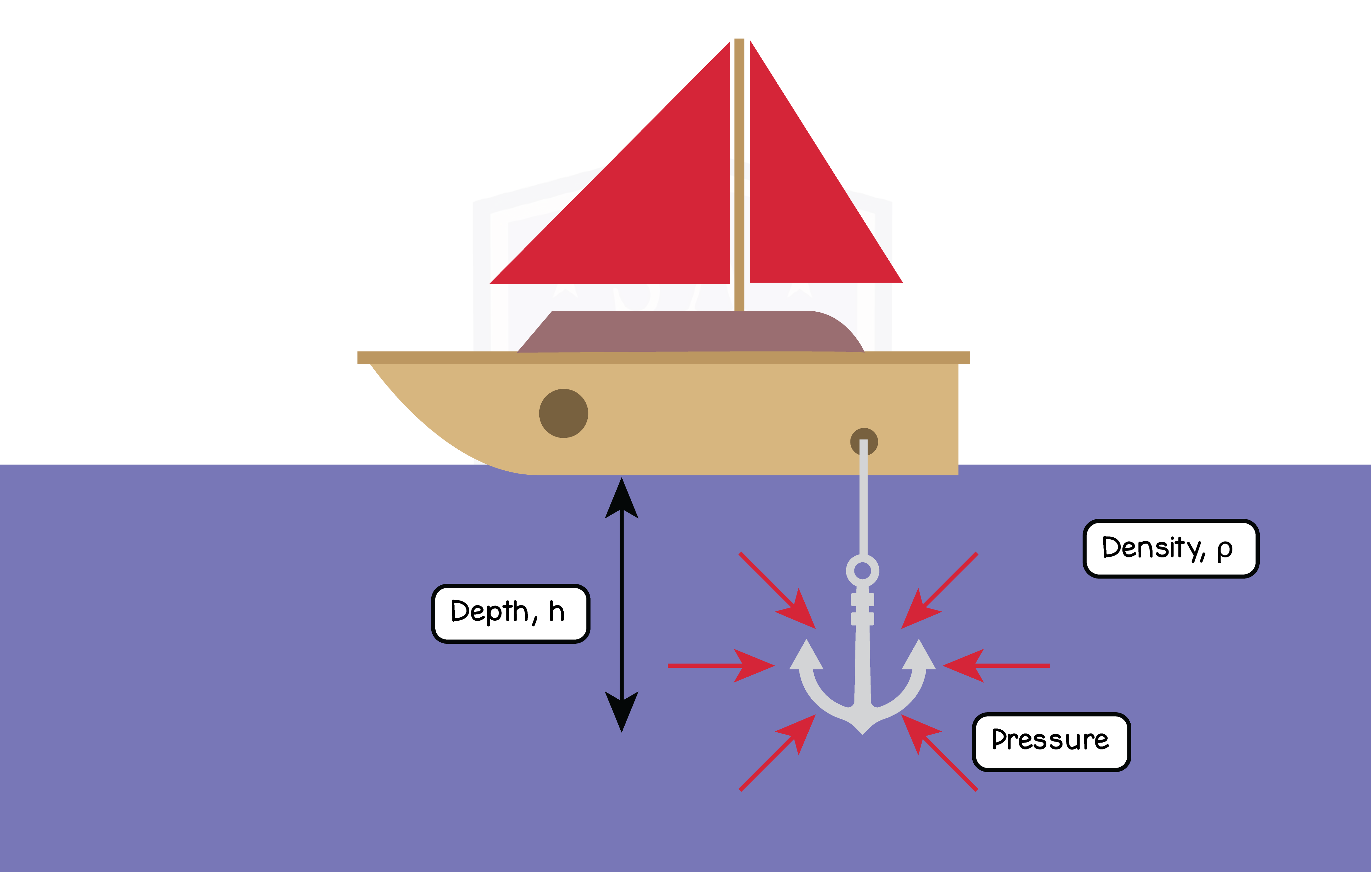REVISION NOTES
IGCSE Edexcel Physics
5.1 Density and Pressure
5.1.1 Use the following units: degree Celsius (°C), Kelvin (K), joule (J), kilogram (kg), kilogram/metre3 (kg/m3), metre (m), metre2 (m2), metre3 (m3), metre/second (m/s), metre/second2 (m/s2), newton (N) and pascal (Pa)
Temperature – degrees celsius (°C)
Temperature – kelvins (K)
Energy – joules (J)
Mass – kilograms (kg)
Density – kilograms per cubic metre (kg/m3)
Distance – metres (m)
Area – metres squared (m2)
Volume – cubic metre (m3)
Velocity – metres per second (m/s)
Acceleration – metres per second squared (m/s2)
Force – newtons (N)
Pressure – pascals (Pa)
5.1.2P Use the following unit: joules/kilogram degree Celsius (J/kg °C)
Specific heat capacity is the amount of energy required to raise the temperature of one kilogram of a substance by one degree celsius
Specific heat capacity = joules per kilogram degree celsius (J/kg°C)
5.1.3 Know and use the relationship between density, mass and volume:

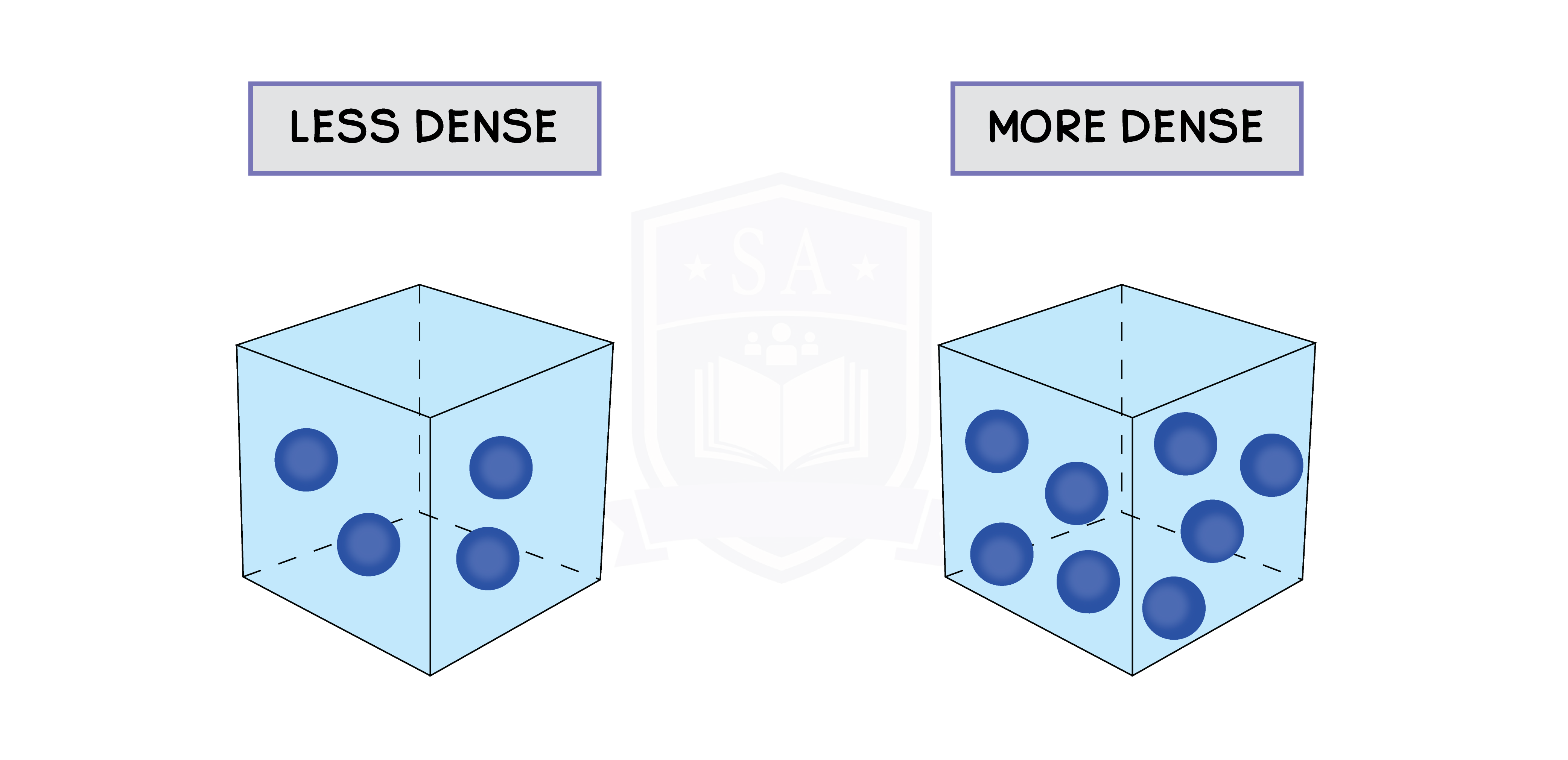
5.1.4 Practical: investigate density using direct measurements of mass and volume
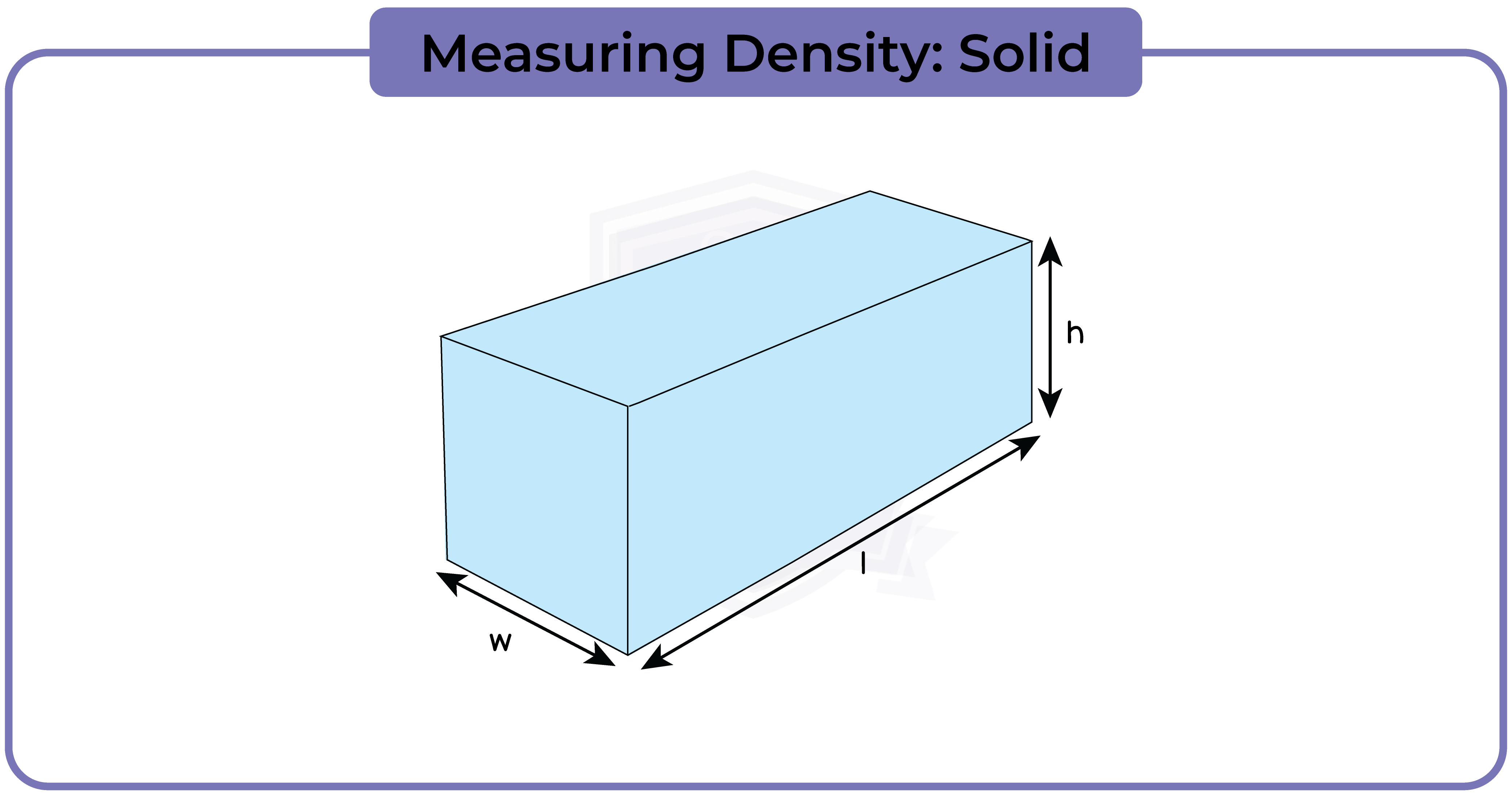
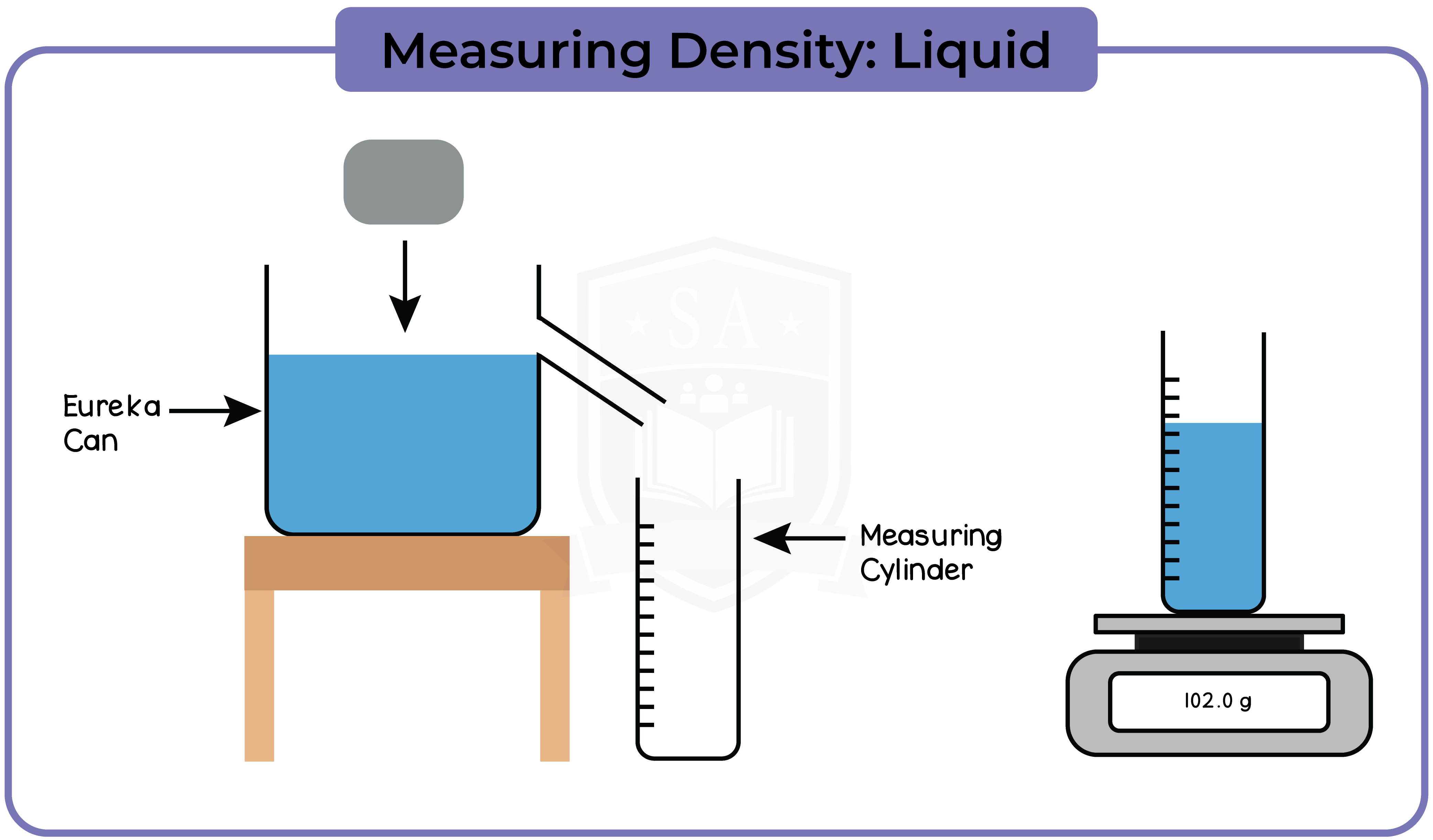
5.1.5 Know and use the relationship between pressure, force and area:

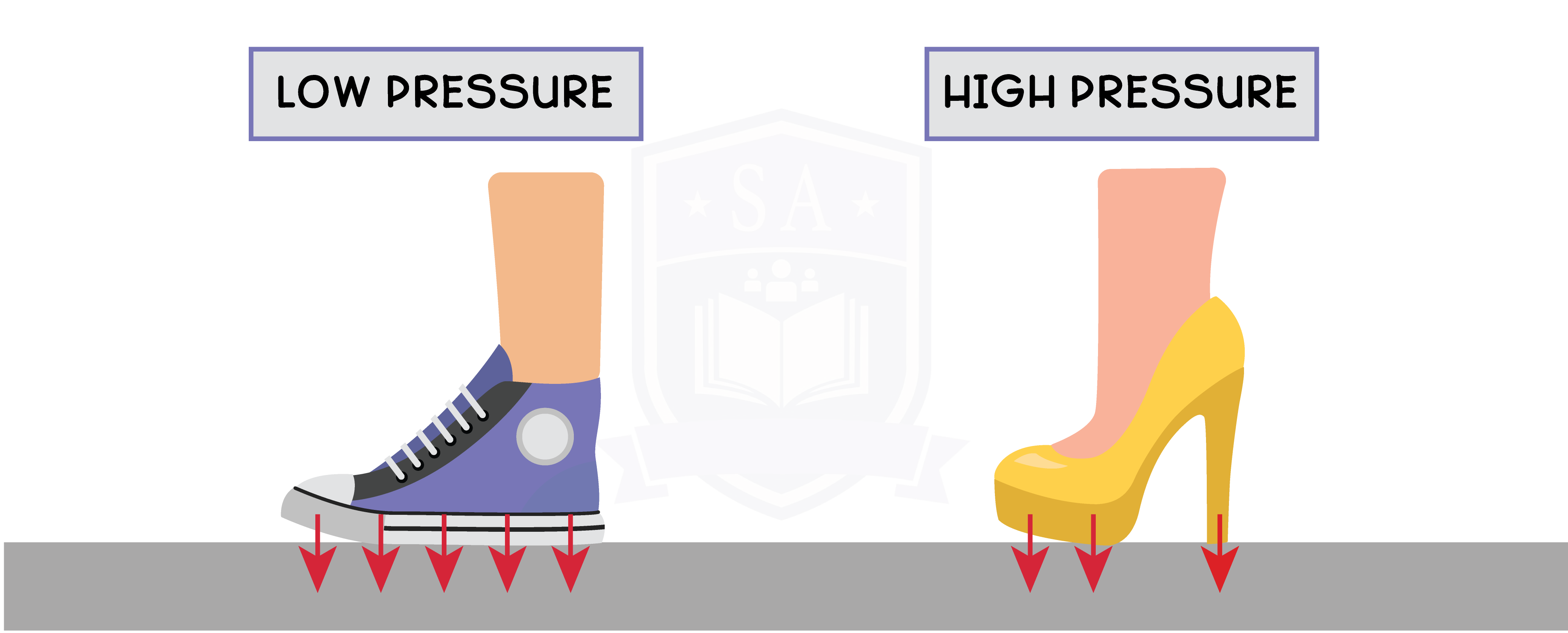
5.1.6 Understand how the pressure at a point in a gas or liquid at rest acts equally in all directions

5.1.7 Know and use the relationship for pressure difference:
pressure difference = height × density × gravitational field strength

